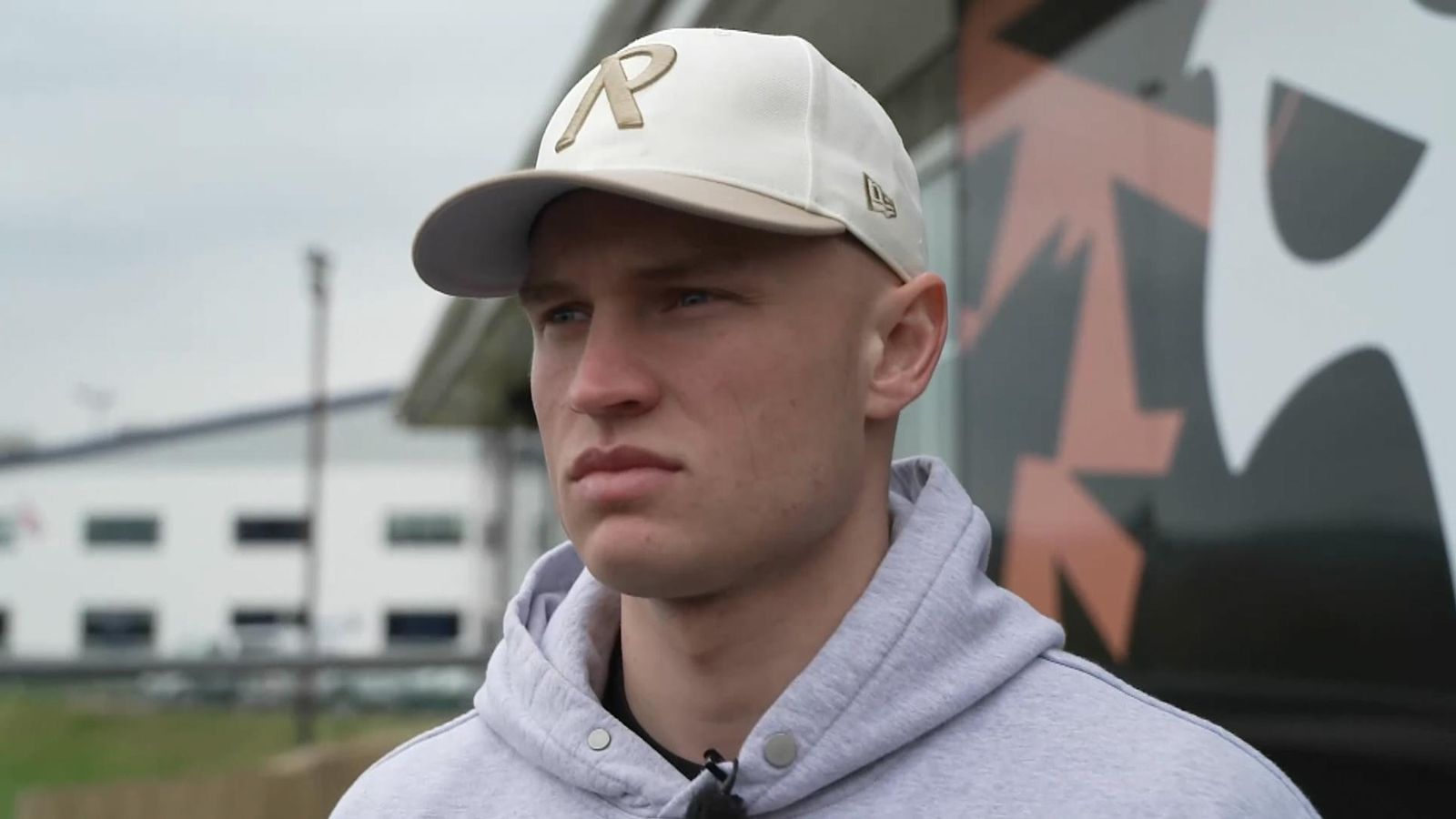Ospreys rising star Harri Morgan who quit rugby after trying to take his own life aims to break stigma around mental health

Harri Morgan was living the dream while suffering in silence.
From growing up in a fanatical rugby family in the Valleys to scoring a try on his debut for local professional team the Ospreys at 18.
From being feted at school for his rugby prowess to gaining national acclaim by starting to represent Wales in the Six Nations at under-20s level.
“From a young age, I sort of accelerated pretty fast through the age groups,” he recalled in an interview with Sky News.
“Then when I hit sort of the age of 19, 20, injuries started mounting.”
Injuries that took not only a physical toll, but impacted his mental wellbeing.
At the same time, Morgan’s grandmother died suddenly and his grandfather died from cancer.
“Losing them hit me, like nothing’s ever hit me before,” he said. “I love playing rugby – and by getting injured, I couldn’t do that.”
There was the grief for the loss of his grandparents and the pain of his rugby ambitions being put on hold by injuries.
He said: “Then the thoughts come of what’s my point in life? What is my purpose? I had no purpose.
“Whereas rugby has always been my purpose, I’d lost the ability to play rugby. So I’d lost the purpose. And so that’s when suicidal thoughts come in.”
The anguish heightened over Christmas.
He had sought help from his parents and doctor.
“Then in February it obviously came to a head where I tried taking my own life,” he recalled.
In hospital came the realisation, talking with his parents and the doctors.
Regaining his fitness had been the priority but protecting his mental health meant stepping away from rugby at 23.
“Let’s go back to being a good person, to go back to living my life as a person, rather than the stresses that rugby can bring,” Morgan said in his first interview since he decided to stop playing.
“Rugby can give you the best moments of your life, which it has, and I’m thankful to rugby for that… but the injuries and stuff that comes with rugby, not many people talk about the negative sides of it.”
It is rare for any athlete to speak so candidly about their mental health. Especially one so young – the first player born this century to feature for the Ospreys.
‘You can’t fix something on your own’
He wants to show speaking helps. To show there is no shame. To show it does get better. And to save lives. Not only in rugby or sport but more widely.
“I know people close to me taking their own lives around my area,” he said. “I’ve [sought] help. I haven’t been able to fix it on my own. You can’t fix something on your own.
“You’ve always need help and there are people that are out there for us to get help. The help that we need.
“And I’m hoping by speaking that I’ve either saved lives or will in the future. And that’s what I’m hoping to do for years to come – keep having that voice, keep telling my story. And raise that awareness and break that stigma.”
It’s a message particularly important in this World Cup year as tournament hopefuls might suffer injuries or be dropped – denying them lifelong dreams.
“It’s going to be a tough couple of months for players with World Cups – potential disappointment,” he said. “But let’s talk about these disappointments.”
Read more:
People suffering suicidal thoughts offered new path to immediate support
Government launches £29m package to tackle loneliness
One in four girls aged 16 using NHS mental health services
‘Let’s make mental health a thing we can talk about’
“Let’s air our thoughts and let’s make mental health a thing that we can talk about with each other rather than something that we feel we need to hide,” he added.
And maybe one day Morgan will be back playing. For now, though, work is growing an online fitness business.
“I’m not saying goodbye to rugby forever,” he said, concluding the interview at the Ospreys training HQ.
“I’m just taking some time out at the minute to get number one right. To get myself right as a person and then potentially I’d love to come back into rugby.
“And I know then if I’m mentally in a better position, then I can perform better on the field.”
Anyone feeling emotionally distressed or suicidal can call Samaritans for help on 116 123 or email jo@samaritans.org in the UK. In the US, call the Samaritans branch in your area or 1 (800) 273-TALK.